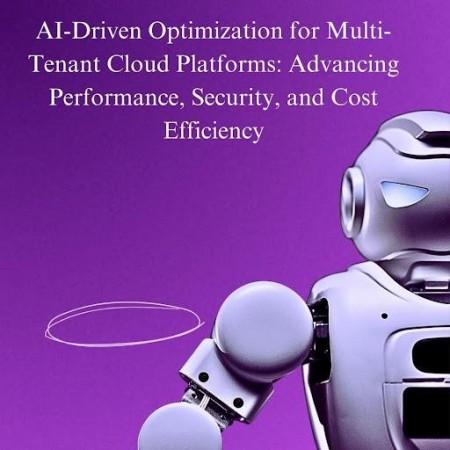
An expert in cloud computing, Mouna Reddy Mekala introduces an innovative AI-driven optimization framework that transforms the management of multi-tenant cloud platforms. The proposed framework addresses critical challenges in cost efficiency, performance enhancement, and security enforcement, offering a comprehensive solution for the evolving cloud landscape.
The Growing Complexity of Multi-Tenant Cloud Environments
As cloud computing continues its rapid growth, multi-tenant architectures serve as the foundation for modern digital infrastructure, enabling efficient resource sharing and scalability. However, managing multiple tenants within a shared environment introduces challenges in resource allocation, tenant isolation, and security enforcement. Traditional static allocation methods struggle to balance demand, often causing over-provisioning, which wastes resources, or under-provisioning, leading to performance bottlenecks. These inefficiencies can result in service disruptions, security vulnerabilities, and increased operational complexity, necessitating dynamic, intelligent allocation strategies.
AI-Powered Predictive Analytics for Resource Optimization
One of the most significant innovations in this framework is the integration of predictive analytics for dynamic cloud resource allocation. By utilizing advanced machine learning models, the system accurately forecasts workload demands with an impressive 94.7% precision. This enables proactive resource distribution, preventing both over-provisioning and underutilization. As a result, the framework not only optimizes cloud performance but also significantly reduces operational costs by 39.4% compared to conventional static allocation methods. This intelligent approach enhances efficiency, ensures seamless scalability, and improves overall cloud infrastructure management.
Real-Time Dynamic Resource Allocation
Unlike traditional static resource quotas, the AI-driven framework dynamically adjusts resource allocation in real time, handling up to 850,000 decisions per minute. This adaptive approach significantly reduces resource contention by 78.4%, ensuring consistent application performance and high availability. By continuously monitoring and responding to workload fluctuations, the framework minimizes downtime, optimizes cloud efficiency, and enhances user experience across multi-tenant environments. This level of automation and precision ensures seamless scalability while preventing inefficiencies associated with rigid allocation models.
Strengthening Security with AI-Enhanced Enforcement Mechanisms
Security is a major challenge in multi-tenant cloud platforms, where cross-tenant access and data isolation risks threaten sensitive information. To combat this, the framework integrates a security policy manager that enforces boundary protections with a 99.92% success rate. Additionally, an AI-driven anomaly detection system monitors network activity, identifying threats with 97.8% accuracy. By proactively mitigating risks, this intelligent security framework ensures strong protection, regulatory compliance, and data confidentiality in shared cloud environments.
Automated Compliance Monitoring for Regulatory Adherence
Maintaining compliance in cloud environments is a challenge, particularly as organizations handle vast amounts of data across multiple jurisdictions. The framework automates compliance monitoring with a 99.85% accuracy rate, significantly reducing manual oversight and ensuring adherence to regulatory standards. This feature is crucial for industries requiring stringent data governance, such as finance and healthcare.
Improving Cost Efficiency with AI-Based Optimization
Cost optimization is a crucial factor in cloud computing, especially for enterprises managing large-scale deployments. The framework employs reinforcement learning models to adjust resource allocation dynamically, leading to a 67.2% reduction in operational expenses. By integrating intelligent workload distribution mechanisms, organizations can achieve high performance while minimizing costs.
Future Directions: Edge Computing and Quantum Security
Looking ahead, the framework has the potential to integrate emerging technologies such as edge computing and quantum security. Edge-based processing could reduce latency by 65% in real-time applications, while quantum-inspired algorithms may enhance policy conflict resolution, further strengthening cloud security measures.
In conclusion, Mouna Reddy Mekala's AI-driven framework represents a significant advancement in multi-tenant cloud platform management. By integrating predictive analytics, dynamic resource allocation, and intelligent security enforcement, the framework enhances efficiency, security, and cost-effectiveness. As cloud computing evolves, this innovative solution paves the way for more resilient and intelligent cloud infrastructure.

















